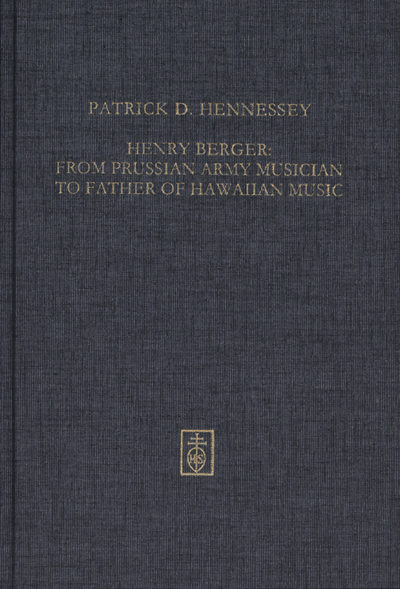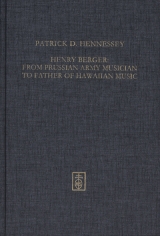Henry Berger: From Prussian Army Musician to "Father of Hawaiian Music," The Life and legacy of Hawai´i´s bandmaster
Schneider, Hans (Verlag)
978-3-86296-056-9 (ISBN)
- Titel ist leider vergriffen;
keine Neuauflage - Artikel merken
In August 1914 the Territory of Hawai‘i paid homage to its Prussian-born bandmaster on the occasion of his seventieth birthday. Several hundred citizens and community leaders gathered along with governmental officials, past and present, to honor Henry Berger, who had led the Royal Hawaiian Band since his arrival in Honolulu forty-two years earlier. In addition to Lucius E. Pinkham, the current territorial governor, Sanford B. Dole, the former President of the Provisional Government and a key figure in the overthrow of the Hawaiian monarchy, and Lili‘uokalani, the deposed Queen of the Nation of Hawai‘i, participated in the celebration. The occasion marked the first time since the overthrow that Lili‘uokalani agreed to meet in the same public arena with Dole. The event had added significance, however, for it was allegedly on this occasion that Queen Lili‘uokalani proclaimed Berger the “Father of Hawaiian Music.” Berger’s career merited this distinction. He is credited with conducting over 32,000 concerts and arranging more than 1,000 Western musical compositions for the Royal Hawaiian Band, the official band of Hawai‘i’s ruling parties. He also composed an estimated 500 marches and published over 100 works. Outside of his official duties, Berger was a key figure in Honolulu’s entertainment community, providing music for countless theatrical productions and private functions. However, it was his work with Hawaiian music that defined his legacy. Henry Berger was a seminal figure in preserving and promulgating Hawaiian music at a crucial juncture in its evolution. He helped transform the music of Hawai‘i by incorporating European genres such as the waltz, the polka, and particularly the march, into the islands’ musical repertoire. Two songs composed in the style of Himeni (hymns) are among his most celebrated collaborations: Hawai‘i Pono‘i, the national anthem of the kingdom, with words by King Kalakaua, and Lili‘uokalani’s immortal song, Aloha ‘Oe. This study examines Berger’s impact on the development of music in Hawai‘i, his role in bringing international acclaim to the Royal Hawaiian Band, and his stature as the “Father of Hawaiian Music.” It also provides a chronological overview of his life in the context of Prussian and Hawaiian history.
| Reihe/Serie | Alta Musica ; 30 |
|---|---|
| Verlagsort | Tutzing |
| Sprache | englisch |
| Maße | 160 x 235 mm |
| Gewicht | 761 g |
| Einbandart | Leinen |
| Themenwelt | Kunst / Musik / Theater ► Musik ► Musikgeschichte |
| Schlagworte | Henry Berger |
| ISBN-10 | 3-86296-056-0 / 3862960560 |
| ISBN-13 | 978-3-86296-056-9 / 9783862960569 |
| Zustand | Neuware |
| Haben Sie eine Frage zum Produkt? |
aus dem Bereich




